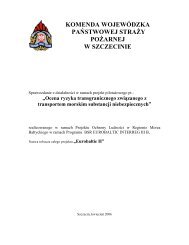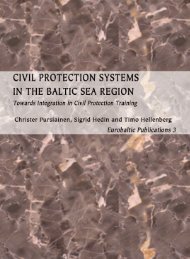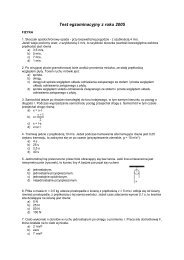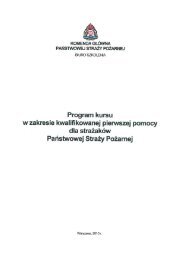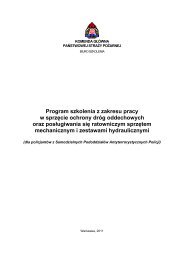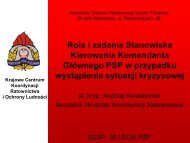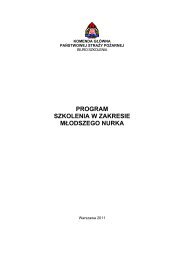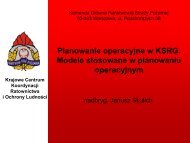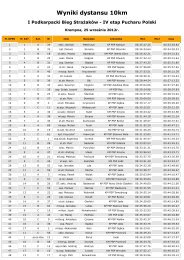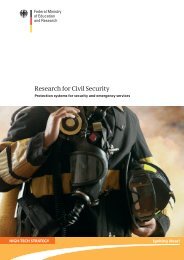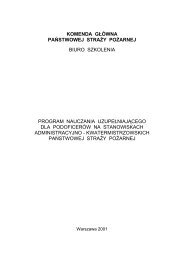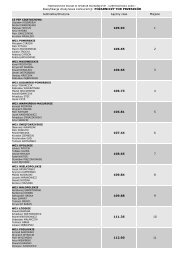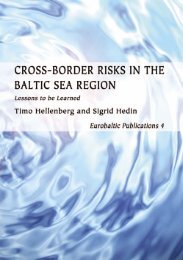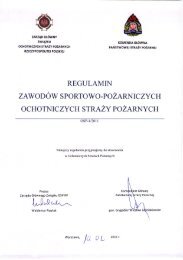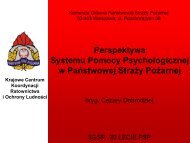Towards a Baltic Sea Region Strategy in Critical ... - Helsinki.fi
Towards a Baltic Sea Region Strategy in Critical ... - Helsinki.fi
Towards a Baltic Sea Region Strategy in Critical ... - Helsinki.fi
Create successful ePaper yourself
Turn your PDF publications into a flip-book with our unique Google optimized e-Paper software.
CHAPTER IV: OIL TRANSPORTATION ANDMARITIME SAFETY<br />
for the European Union. In the European Union, it is ma<strong>in</strong>ly the Transport Council<br />
and the Environment Council that are responsible for this action. 109 The<br />
establishment of the European Maritime Safety Agency (EMSA) strengthens EU’s<br />
role <strong>in</strong> the <strong>fi</strong>eld of maritime safety and pollution prevention.<br />
After the 2004 EU enlargement Russia rema<strong>in</strong>s the only non-EU member<br />
state <strong>in</strong> the BSR, thus ensur<strong>in</strong>g that the <strong>Baltic</strong> <strong>Sea</strong> will not form an <strong>in</strong>ternal sea of<br />
the EU. For this reason it is not possible to rely only on European action and<br />
legislation, even if the Commission does consider the transport and energy sectors<br />
amongst the most immediate priorities for action (Commission 2006a, p. 9).<br />
The so-called Hels<strong>in</strong>ki Convention, Convention on the Protection of the<br />
Mar<strong>in</strong>e Environment of the <strong>Baltic</strong> <strong>Sea</strong> Area, was established <strong>in</strong> 1992 to protect this<br />
mar<strong>in</strong>e environment from all sources of pollution through <strong>in</strong>tergovernmental<br />
cooperation between Denmark, Estonia, the European Community, F<strong>in</strong>land,<br />
Germany, Latvia, Lithuania, Poland, the Russian Federation and Sweden. The<br />
<strong>in</strong>tergovernmental body HELCOM was established to govern the convention, but<br />
s<strong>in</strong>ce then HELCOM has produced many other decisions and recommendations,<br />
e.g. the Copenhagen Declaration on the Safety of Navigation and Emergency<br />
Capacity <strong>in</strong> the <strong>Baltic</strong> <strong>Sea</strong> Area 2001. HELCOM decisions or recommendations<br />
are not legally b<strong>in</strong>d<strong>in</strong>g, but work almost as legislative <strong>in</strong>struments, s<strong>in</strong>ce they are<br />
adopted unanimously with a serious endeavour by the parties to comply with them.<br />
In addition, there exist the <strong>in</strong>ternational conventions of the IMO, which is<br />
part of the United Nations adm<strong>in</strong>istration. The IMO named the <strong>Baltic</strong> <strong>Sea</strong> as a<br />
Special <strong>Sea</strong> Area (SSA) <strong>in</strong> 1995. This translates <strong>in</strong>to several restrictions for e.g.<br />
discharges of oil, oily water, oily waste and garbage <strong>in</strong>to the sea as well as for the<br />
emissions <strong>in</strong>to the air (IMO 1973/78). Many IMO conventions and resolutions deal<br />
expressly with maritime security <strong>in</strong> the <strong>Baltic</strong> <strong>Sea</strong> (e.g. IMO 1972 and 2002; IMO<br />
Resolution A 978(24), IMO Resolution MSC 138(76)). Despite the regulations and<br />
<strong>in</strong> direct contravention of e.g. the MARPOL, about 300 operational discharges of<br />
oil take place annually (HELCOM 2004).<br />
En-route states with their national legislations cannot b<strong>in</strong>d adjacent nations,<br />
and any regulatory and enforcement actions must be consistent with the<br />
<strong>in</strong>ternational law e.g. UNCLOS (United Nations Convention on the Law of the<br />
<strong>Sea</strong>) or IMO Conventions. These regulations, however, do not seem to be enough<br />
for coastal states burdened by the <strong>in</strong>creas<strong>in</strong>g traf<strong>fi</strong>c, and the likelihood of a major<br />
maritime disaster keeps grow<strong>in</strong>g.<br />
Most of the recommendations that come from the EU, HELCOM, IALA,<br />
EMSA, IMO and other <strong>in</strong>ternational sea traf<strong>fi</strong>c-related organizations are be<strong>in</strong>g<br />
turned <strong>in</strong>to a b<strong>in</strong>d<strong>in</strong>g rule of mar<strong>in</strong>e safety procedures. However, the Estonian MA<br />
accentuated that problems also arise with the fact that there are so many<br />
<strong>in</strong>ternational organizations with similar or largely overlapp<strong>in</strong>g functions, and thus,<br />
with similar recommendations to be followed. These organizations are also<br />
compet<strong>in</strong>g with each other over the question of which of the <strong>in</strong>stitutions should get<br />
more tasks <strong>in</strong> maritime safety regulation. Hoard<strong>in</strong>g up these tasks seems to have<br />
been a way to justify their existence, which has resulted <strong>in</strong> a concentration more<br />
109 The Commission’s proposal for a wider EU ban on all s<strong>in</strong>gle-hulled oil tankers operat<strong>in</strong>g <strong>in</strong> EU<br />
waters was agreed upon recently. Internationally the deadl<strong>in</strong>e for the phase out for such vessels is<br />
2015.<br />
NORDREGIO REPORT 2007:5 159



